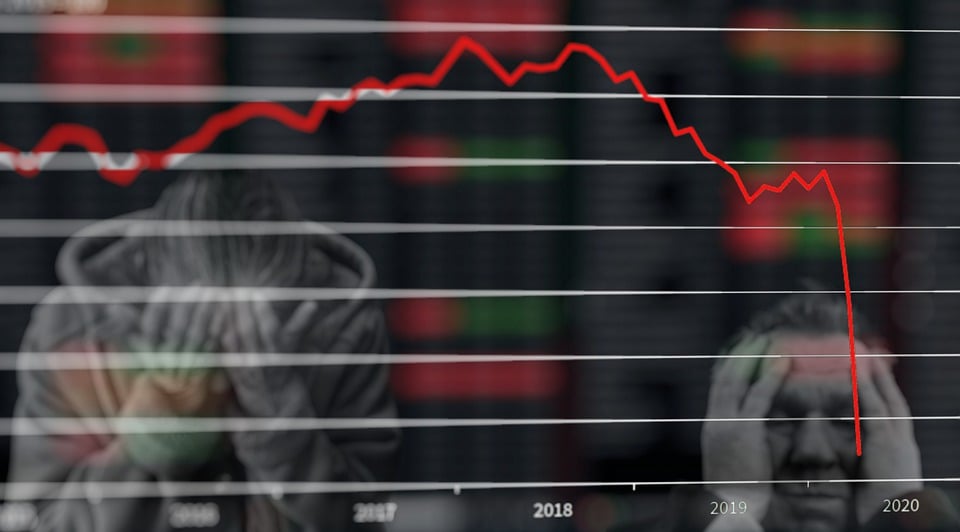Germany Back In Stagnation, IFO Leading Economic Indicator Sinks Again

Image Source: Pixabay
Germany is in an economic crisis zone according to IFO analysis.

Please consider the IFO Business Climate Index for September
Sentiment has once again deteriorated at companies in Germany. The ifo Business Climate Index fell in September to 85.4 points, from 86.6 points in August, the fourth decline in a row. The companies were particularly less satisfied with the current business situation. The outlook for the coming months continues to decline. The German economy is coming under ever-increasing pressure.
IFO Key Points
- In manufacturing, the index fell considerably. Companies were significantly less satisfied with the current business situation. Expectations fell to the lowest level since February. Companies once again reported declining order backlogs. The situation for investment goods manufacturers, in particular, is difficult.
- In the service sector, the business climate deteriorated. This was due in particular to skeptical expectations. In addition, the current business situation worsened somewhat.
- In trade, the business climate rose slightly after declining two times in a row. That was due to the somewhat less pessimistic expectations. Traders were, however, less satisfied with the current business situation.
- In construction, the index was unchanged. On the one hand, companies were slightly more satisfied with the current business situation. On the other, their expectations declined slightly.
IFO Heatmap
The ifo Heatmap is a compact summary of the ifo Business Cycle Clock for the individual sectors of the German economy. If the ifo Heatmap shows dark blue, then the business situation and expectations are below average and companies are in crisis. As business expectations improve, the light red recovery sets in. If the business situation and expectations are above average, companies are in a dark red boom, which is often referred to as overheating. If the light blue cooling sets in, then business expectations are deteriorating.
IFO Business Climate

Boulevard of Broken Dreams
ING reports German Ifo Index Drops Again in September
Germany’s most prominent leading indicator, the Ifo index, has dropped for the fifth month in a row. This illustrates that the economy is currently stuck in what appears to be a self-reinforcing vicious cycle of economic stagnation
Following German macro data is more like a long stroll on the boulevard of broken dreams. After yesterday’s disappointing PMI readings, the Ifo index – Germany’s most prominent leading indicator – continued its recent downward trend and dropped for the fifth consecutive month to 85.4 in September from 88.6 in August. It is now back at levels last seen at the start of the year. The current assessment component took a severe hit and dropped to 84.4 from 86.4 in August, while the expectations component only fell marginally to 86.3, from 86.8 in September.
The cyclical hope that grabbed the German economy in the first months of the year has disappeared, mainly due to a weaker global economy but also because of fears of a cooling US economy, ongoing geopolitical tensions and domestic policy uncertainty. Additionally, the increasing number of insolvencies and individual company announcements of upcoming job restructurings are still hanging like the Sword of Damocles over what has been one of the few strongholds of the economy in recent years: the labour market. To make things worse, recent negative news from the German automotive industry is to some extent just another illustration of the ongoing structural and cyclical problems but are unfortunately probably also further fuelling negative sentiment; a perfect vicious cycle.
A Bit of Hope?
Still, and as depressing as this new episode of bad news is, don’t rule out potential positive surprises towards the end of the year. While the highest increase in real wages in more than a decade could still open German consumers’ wallets, despite increasing job loss fears, it is industrial production that could still come to the rescue. Inventories have been at high levels for an unprecedented length of time. It’d only take a small improvement in industrial order books to turn the inventory cycle and get industrial production growing again. Admittedly, this would be a cyclical improvement coming from very low levels, hardly changing the narrative of a country stuck in stagnation.
It’s Hopeless
It’s hard to open wallets when layoffs are rising, insolvencies are rising, China is in the gutter, EU energy policy is in shambles, the US is much worse than the Fed and most economists think, and global trade wars are coming no matter who wins the US election.
So, yes, I am ruling out positive surprises.
Back in the US …
Spotlight Jobs
August 22: A Breakdown, by Sector, of the Negative 818,000 BLS Job Revisions
September 6: Payroll Report: Manufacturing Sheds 24,000 Jobs, Government Adds 24,000, Big Negative Revisions
September 7: BLS Negative Job Revisions 15 of Last 21 Months
September 9: Fed Beige Book Conditions Are Worse Now Than the Start of the Great Recession
September 19: The Ominous Reason Continued Unemployment Claims Have Improved
More By This Author:
21 Million Renter Households Spent Over 30% of their Income on Housing CostsFirst Dissent Since 2005 Shows Total Lack Of Diversity At The Fed
The Ominous Reason Continued Unemployment Claims Have Improved
Disclaimer: The content on Mish's Global Economic Trend Analysis site is provided as general information only and should not be taken as investment advice. All site content, including ...
more


